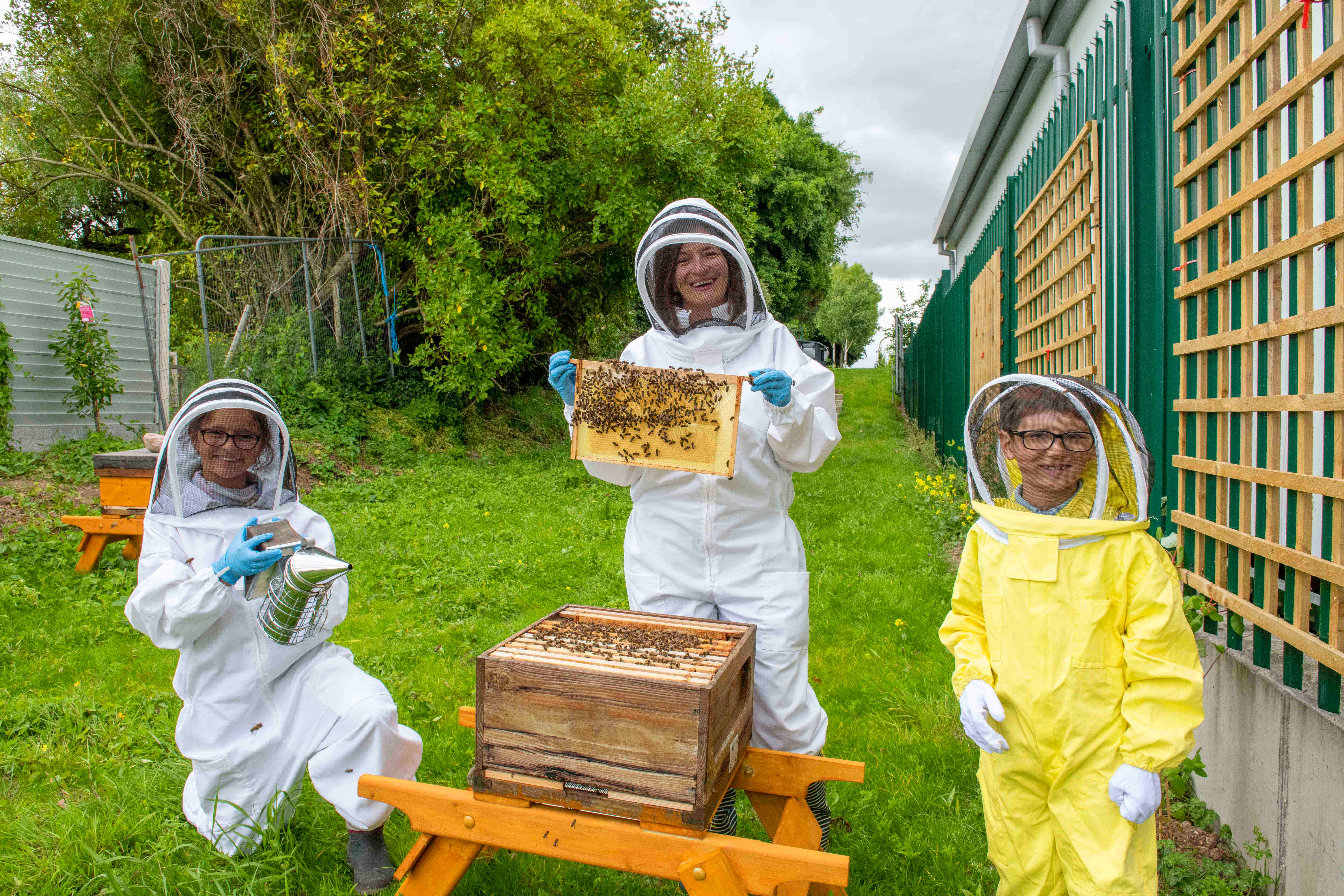Hospital installs hives to ease children’s bee and wasp sting fears
Cork University Hospital has become home to tens of thousands of honeybees.

Your support helps us to tell the story
From reproductive rights to climate change to Big Tech, The Independent is on the ground when the story is developing. Whether it's investigating the financials of Elon Musk's pro-Trump PAC or producing our latest documentary, 'The A Word', which shines a light on the American women fighting for reproductive rights, we know how important it is to parse out the facts from the messaging.
At such a critical moment in US history, we need reporters on the ground. Your donation allows us to keep sending journalists to speak to both sides of the story.
The Independent is trusted by Americans across the entire political spectrum. And unlike many other quality news outlets, we choose not to lock Americans out of our reporting and analysis with paywalls. We believe quality journalism should be available to everyone, paid for by those who can afford it.
Your support makes all the difference.A hospital has installed beehives to ease the fears of children who have suffered life-threatening reactions to bee and wasp stings.
Cork University Hospital has become home to tens of thousands of honeybees in a unique apiary project.
Patients will soon be able to watch the insects from waiting rooms via a CCTV system installed at entry points to the hives.
The 15,000 euro project, funded by CUH Charity, has been three years in the making – and will also produce the hospital’s own brand of CUHoney.
The Wilton campus is the national centre for the treatment of children who have endured life-threatening allergic reactions (anaphylaxis) to bee and wasp stings.
Treatment requires immunotherapy – intensive, long-term injections of venom doses – which helps the immune system build up a tolerance to the venom.
Despite being highly successful at reducing the risk of future reactions, many patients keep their distance from bees and wasps, even though they may have had a family connection with beekeeping.
Paediatrics allergy consultant Dr Juan Trujillo said the project is vital in reassuring patients that they can continue to live life in the same way – with a reduced possibility of a life-threatening event from a sting.
“They need to know that allergies are everywhere but with this kind of treatment, they will have less anxiety in the future,” he said.
The introduction of the hives will also boost biodiversity across the campus while helping to reverse Ireland’s declining bee population.
CUH, which treats up to 20 patients with anaphylaxis every year, has introduced pollenating gardens and two hives, potentially accommodating 40,000 bees, but before that could happen trees and wildflowers had to be planted on site.
We will need to mind the bees frequently during the summer and check them every seven-10 days, depending on their activity
The Cork healthcare facility, which already holds a Green Flag award from An Taisce, does not have to go far to find someone to look after its winged guests – several hospital staff are also beekeepers.
One of them is Dr Anda Dumitrescu, of the Department of Paediatrics at UCC, who said the project will enable all children attending CUH as inpatients to learn about bees and their ecosystems at CUH’s school.
“Visits to the hives in CUH can be facilitated with the provision of protective clothing and will enhance their experience while in hospital and improve their quality of life while recovering,” she said.
“We will need to mind the bees frequently during the summer and check them every seven-10 days, depending on their activity.
“I am a beekeeper and we could look at volunteers to help from different departments in the hospital.”
Ruaidhri DeBarra, CUH’s sustainable environment officer, is also involved in the project.